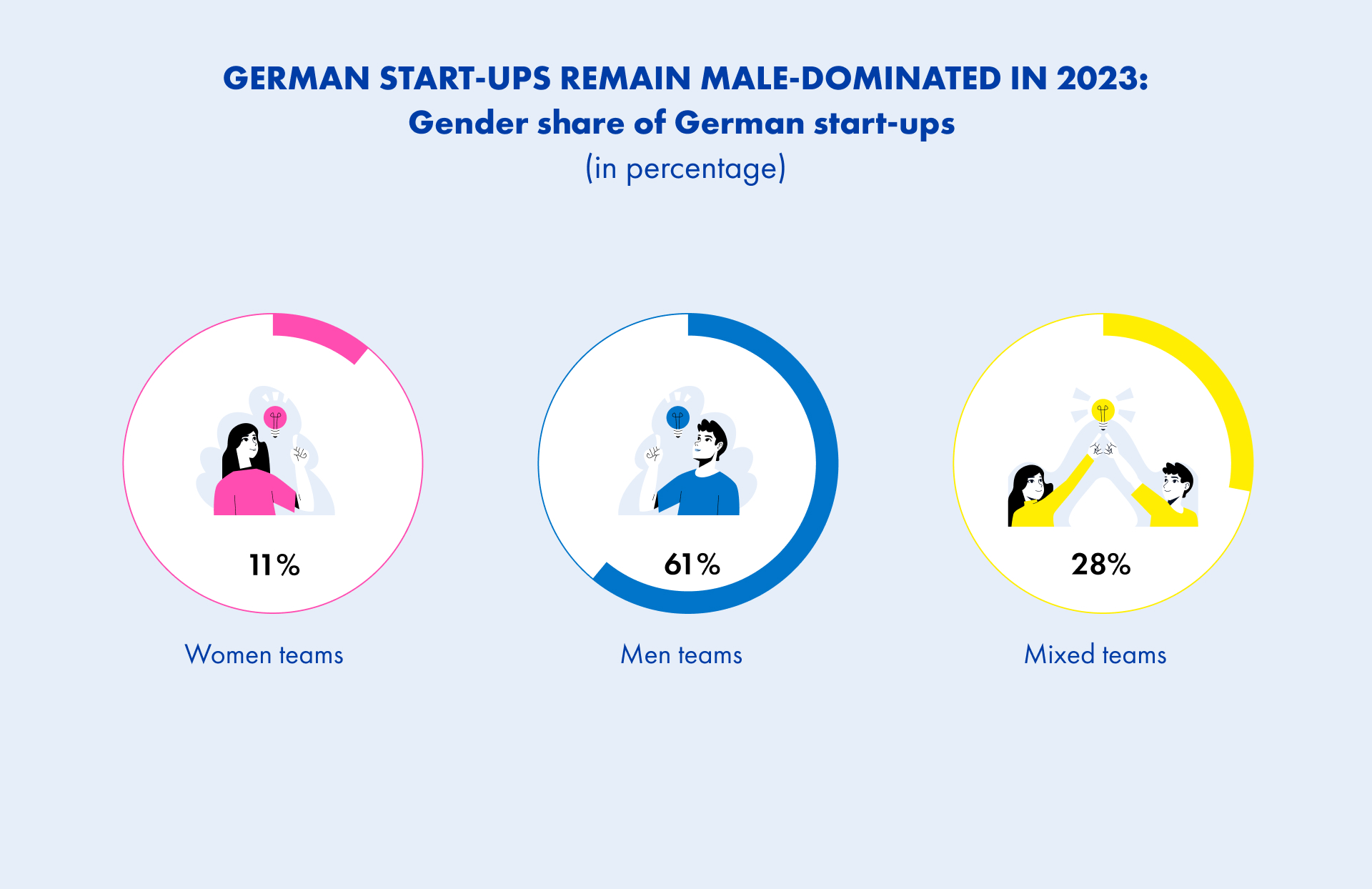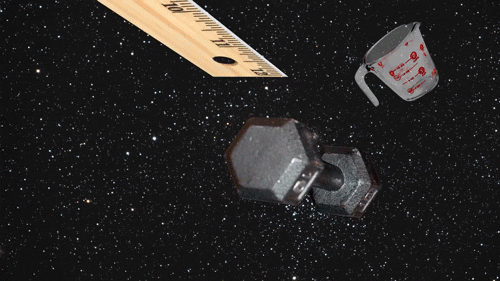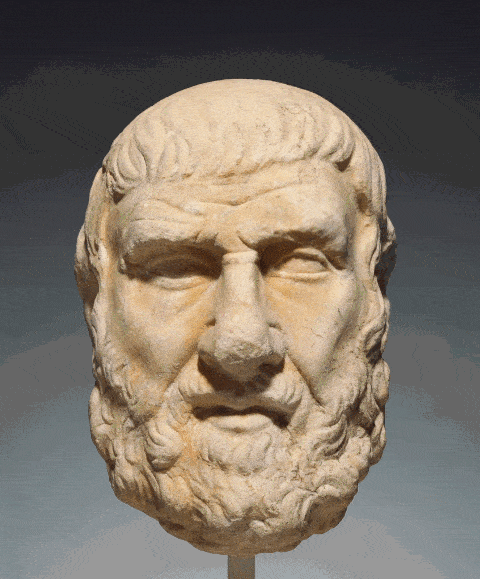Issue #156
Guten Morgen! After bidding adieu to the carnival’s carefree revelry, we’re bracing ourselves for the Munich Security Conference – where the confetti is replaced with critical conversations. As we prepare for the more serious discussions ahead, don’t forget to stock up on coffee, visit your dry cleaners, and ensure your access badges are primed for action. Rest assured, this Krautshell edition has everything else covered. From Zelenskyy’s diplomatic journey to Trump’s NATO musings, this edition takes you on a global tour. Unpack regulatory twists, the UK’s economic ballet, and a peek into gender ratios in German startups. Microsoft’s hefty investment in German data centers adds to the mix. In this week’s WOOM Ansgar dives into the intriguing concept of U.S. global dominance denial. Ready for a brisk yet enlightening read? Anna Szilvia WHAT TO WATCH THIS WEEK: Zelenskyy enroute to Berlin and Munich ahead of the Munich Security Conference Ukrainian President Volodymyr Zelenskyy embarks on a brief tour through Paris and Berlin enroute to Munich for the Munich Security Conference (MSC). In Paris, he will engage in discussions with French President Emmanuel Macron, who will be absent from the MSC, and German Chancellor Olaf Scholz. During these meetings, bilateral security agreements will be signed with both France and Germany. On Saturday, Zelenskyy is set to address the audience at the MSC, marking two years since his impassioned plea for assistance just before the incursion of Russian tanks. Additionally, Zelenskyy has a series of bilateral meetings lined up, including ones with U.S. Vice President Kamala Harris, Czech President Petr Pavel, Danish Prime Minister Mette Frederiksen, and Dutch Prime Minister Mark Rutte, among others. Vice President Harris is poised to articulate a robust defense of U.S. foreign policy during her address at the conference, emphasizing the perils of isolationism and reaffirming America’s steadfast commitment to NATO. Notably, alongside the Vice President and Secretary of State Anthony Blinken, nearly two dozen members of Congress will also be in attendance at the MSC. The discussions in Munich will focus on the war in Ukraine and Gaza. While the Ukraine is currently on the brink of potentially losing control of Avdiivka, a crucial city considered a gateway to Donetsk, the MSC will also feature Israeli President Isaac Herzogand and Foreign Minister Israel Katz, as well as Palestinian Prime Minister Mohammad Shtayyeh. REGULATORY INSIGHTS: Coalition Clash Strikes…Again What would our weekly Krautshell be without an article on government disputes? This week’s spotlight falls on the Lieferkettengesetz, known in English as the Corporate Sustainability Due Diligence Directive (CSDDD). The CSDDD, an EU directive, aims to hold companies more accountable for abuses in their supply chains, such as human rights violations and environmental infractions. Under this law, companies would be legally obliged to identify and address any negative impacts their activities may have on human rights and the environment, with measures to prevent, mitigate, end, or remedy such consequences. However, the final vote in the Council of the EU was postponed last minute due to uncertainty surrounding its passage. Germany, amidst coalition disputes, was expected to abstain, with the Free Democratic Party (FDP) being a key dissenting voice. This isn’t the first time the FDP has attempted to block legislation in Brussels, as seen with their last-minute agreement on the AI Act. Critics suspect the FDP’s opposition stems from their campaign focus on reducing EU-level bureaucracy, with Federal Minister of Justice Marco Buschmann (FDP/Renew) warning against the law in a letter to his EU counterparts. The effectiveness of introducing administrative burdens for companies to counter child labor and poverty is debatable, drawing parallels to past attempts such as the Child Labor Deterrence Act of 1992 in the United States. For now, the CSDDD has been postponed, much to the chagrin of the SPD and the Greens. While the fate of the CSDDD remains uncertain, one thing is clear: disputes within the ruling coalition, especially with the European elections looming, are far from over. THE BIG PICTURE: Trump’s NATO Bombshell: European Leaders Grapple with Security Turmoil and Nuclear Shield Proposals While delving into the on-going Munich Security Conference, we simply can’t overlook Donald J. Trump’s remarks on Article 5 of the NATO treaty. During a campaign rally in South Carolina, Trump declared that, if elected as President of the United States, he would not guarantee protection for NATO countries in the event of a Russian invasion unless they meet the agreed-upon defense spending targets. Cue the gasps from European leaders and the dramatic debates at the Munich Security Conference (MSC). Trump’s musings have breathed new life into the age-old discussion about a European nuclear shield. Christian Lindner, Germany’s Finance Minister, has proposed that the United Kingdom and France take on a more substantial role in Europe’s nuclear defense, particularly if Donald Trump secures re-election—a move that would signify a significant shift in the continent’s defense strategy. However, Germany’s Defense Minister Boris Pistorius was swift to dismiss this suggestion, emphasizing the importance of the American protective shield and the need to maintain it. Despite Trump’s potential re-election, the prospect of a more unified European approach to defense policy remains unlikely. While the immediate threat posed by Russia looms large, the resurgence of right-wing forces across member states suggests a continued emphasis on strong nation-states. But it’s not all doom and gloom: Secretary General Jens Stoltenberg has highlighted progress within NATO, noting that 18 of its 31 member states are on track to meet the two percent target for military spending this year—a significant increase from just three allies meeting this target in 2014. Notably, Germany is set to meet this target for the first time since the early 1990s. A substantial budget of 19.8 billion euros has been allocated from the Bundeswehr’s special fund, with an additional approximately 52 billion euros from the Ministry of Defense’s Section 14 earmarked for the 2024 defense budget. News that will undoubtedly bring satisfaction to Donald J. Trump. Whilst Westminster might be taking a ‘well-earned’ break after a month of work, things haven’t been quiet in the political sphere. Yet for once Prime Minister Rishi Sunak can sleep, relatively, easy as Labour faces re-emerging accusations of deep-rooted antisemitism in the party this week. In some good news for Rishi Sunak, some key economic figures announced this week have not been as negative as expected. Wage growth has remained strong with the last three months of 2023 coming in at 5.8%. Inflation, which was widely expected by experts to rise, has remained stagnant at 4%. However, this has been overshadowed by Thursday’s announcement that the UK has entered a recession, with GDP falling 0.3% in the last quarter of 2023. Growing the economy was one of Sunak’s core five pledges and this news has put a hatchet to his claim of providing economic competence. Ending what had been a relatively quiet week for Sunak on a sour note. Political party infighting has hit Labour this week, as an upcoming by-election descended into an increasingly toxic campaign. The Labour candidate, Azhar Ali, was disowned by the party on Monday night after Ali’s antisemitic comments were leaked to the media. Unfortunately for Starmer, this came after Labour spent days defending him for sharing antisemitic conspiracy theories relating to the October 7 Hamas terror attack. Not good… Just when Starmer thought he could survive the storm, he jumped out of the frying pan and into the fire as wider reports of the meeting that Ali made his incendiary comments emerged. Further recordings of a former Labour MP and current parliamentary candidate came to light, also potentially crossing the line into antisemitism. He has been “administratively suspended” and is unlikely to stand in the upcoming general election. These events have sparked criticisms of Keir Starmer from across the political divide. He has been accused of presiding over a ‘shambles’ by flip-flopping on his support and for treating disciplinary cases differently. The Prime Minister will be hoping these distractions continue to plague Labour Leader for as long as possible. Source: heise.de Here are three appointments for next week that you should have on your radar: We may dominate the world I am currently reading Sean Mirski’s excellent book “We may dominate the world”. It explains one of the big puzzles of international politics: How and why the US became a global empire while denying its existence. It is hard to overemphasize how big the cognitive gap is. Mirski shows how the US built an empire within a few decades while perceiving itself as the ultimate counterproposal to European imperialism. In 1899, the US invaded the Philippines after its former colonial power Spain had been beaten in Cuba. The war killed 10.000 Philippine soldiers; more than 200.000 civilians died in a famine caused by the war. Mirski writes: “Americans never came to terms with these costs. They were too overwhelming to be reconciled with the republic’s image of itself.” In contrast to this state of denial, the Athenians embraced imperialism. In Thucydides’ famous “Melian dialogue”, the conquering Athenians tell their victims: “We shall not trouble you with specious pretenses – either of how we have a right to our empire because we overthrew the Mede, or are now attacking you because of wrong that you have done us- and make a long speech which would not be believed; and in return we hope that you, instead of thinking to influence us by saying that you did not join the Lacedaemonians, although their colonists, or that you have done us no wrong, will aim at what is feasible, holding in view the real sentiments of us both; since you know as well as we do that right, as the world goes, is only in question between equals in power, while the strong do what they can and the weak suffer what they must.” I would guess Putin would subscribe to this view. Which brings me back to the present – and another puzzle: How on earth can people be pro Putin and justify the invasion of Ukraine while accusing the US of imperialism? It’s a serious question: In Germany, an astonishing 15% believe that Putin is the victim of a “global conspiracy”. It seems in-your-face Machiavellism like the Athenian and Russian varieties seems to be more acceptable to many than the perceived hyperbole of an idealistic nation failing to live up to its own high standards. As Daniele Bolelli pointed out in one of his podcasts, few things trigger people more than this gap between idealistic self-image and realities on the ground. Ask someone in the Middle East about US idealism. As a committed transatlanticist, I find this contempt for trying and accepting failure while doing it hard to accept. At the same time, I would wish that the US would be more sensitive to the fact that people outside of the US are triggered by the gap between high rhetoric and the mess on the ground. Issue #156


FIRST, SOME SOLID INTEL:
AND WHAT’S UP IN GREAT BRITAIN?
TAKE A BREAK, GIVE YOUR EYES A REST:

LONG STORY SHORT:
OUTLOOK:
When?
What?
February 21st, 2024
Handelsblatt GovTech Gipfel in Berlin
February 21st, 2024
Masters of Digital in Brussels
February 21st-23rd, 2024
G20 Foreign Ministers' Meeting in Rio de Janeiro
WHAT’S ON OUR MINDS:






